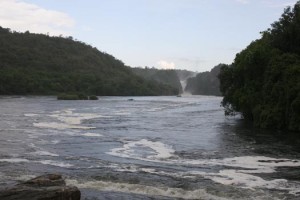Press release 103/10 | 10 May 2010
All the papers from this workshop are available here: http://www.lwrg.org/workshops.html
The London Water Research Group hosted its fifth international workshop on HydroHegemony over the weekend (8-9 May). This year, the workshop entitled 'Water Security: Competing Discourses', focused on issues of water security, farmland investment in Africa and new trends in the water sector.
Professor Tony Allan, Department of Geography, King’s College London and School of Oriental and African Studies, gave the keynote speech. A pioneer in the development of key concepts in the understanding and communication of water issues and how they are linked to agriculture, climate change, economics and politics, Professor Allan was named the 2008 Stockholm Water Prize Laureate. His speech contextualised the current interest in inward international investment in land in developing economies. He highlighted the determining role of water resources as well as their effective management in the potential success of the proposed investments.
Professor Allan comments: ‘The workshop provides a platform for further research on the phenomenon of inward investment in land of Africa and Asia and ensure that the significance of water is given proper emphasis. We also critically reviewed and discussed an important recent study by McKinsey analysing technical, agronomic and economic approaches to achieving water security world-wide.’
Contributors to the international workshop included academics, representatives from NGOs and business. The participants examined the theoretical foundations of water security, discourses on farmland investment in Africa, private sector contribution to water security and discourses on Hydro-Hegemony.
Inward investment of land
Martin Keulertz, Department of Geography, King’s College London, explains: ‘The troubled global economy has brought about an unprecedented international phenomenon in the area of food and water security and injection of money from external sources into arable land. The food price spikes in 2008 alerted governments to strategic uncertainties. Many Western governments, international institutions, development agencies and NGOs are now paying increasing attention to the political, social, environmental and economic impacts of inward investment in land.The workshop discussed the possibilities in the developing world of a secure means of accessing strategic food supplies independent of the uncertainties of global food commodity trade.’
‘The London Water Research Group’s focuses on the role of water resources in Africa and Asia where most of the land deals take place. The impact of such large-scale land acquisition on the target political economies, such as the River Nile riparian states with growing tensions over the shared water resources, has not been examined. The workshop is the first in the world to explicitly discuss the implications of the water/food/land deals nexus.’
Participants at the workshop also studied transboundary water politics and power. The Group explored how such dynamics may be interpreted, and what their consequences are – on the Nile, on the Jordan and in Central Asia. Strategies for counter-hegemony will also be discussed, at length.
This workshop was held at the University of East Anglia London Campus. It has been funded by the King’s College London Graduate School ‘Roberts Fund for Skills Provision’, the King’s Geography Department and the UEA School of International Development.
Notes to editors
King's College London
King's College London is one of the top 25 universities in the world (Times Higher Education 2009) and the fourth oldest in England. A research-led university based in the heart of London, King's has nearly 23,000 students (of whom more than 8,600 are graduate students) from nearly 140 countries, and some 5,500 employees. King's is in the second phase of a £1 billion redevelopment programme which is transforming its estate. King's has an outstanding reputation for providing world-class teaching and cutting-edge research. In the 2008 Research Assessment Exercise for British universities, 23 departments were ranked in the top quartile of British universities; over half of our academic staff work in departments that are in the top 10 per cent in the UK in their field and can thus be classed as world leading. The College is in the top seven UK universities for research earnings and has an overall annual income of nearly £450 million. King's has a particularly distinguished reputation in the humanities, law, the sciences (including a wide range of health areas such as psychiatry, medicine and dentistry) and social sciences including international affairs. It has played a major role in many of the advances that have shaped modern life, such as the discovery of the structure of DNA and research that led to the development of radio, television, mobile phones and radar. It is the largest centre for the education of healthcare professionals in Europe; no university has more Medical Research Council Centres. King's College London and Guy's and St Thomas', King's College Hospital and South London and Maudsley NHS Foundation Trusts are part of King's Health Partners. King's Health Partners Academic Health Sciences Centre (AHSC) is a pioneering global collaboration between one of the world's leading research-led universities and three of London's most successful NHS Foundation Trusts, including leading teaching hospitals and comprehensive mental health services. For more information, visit: www.kingshealthpartners.org. Further informationAlex Bevis, Public Relations Department,
Public Relations Department, King's College London Email: [email protected] Tel: 020 7848 3238












